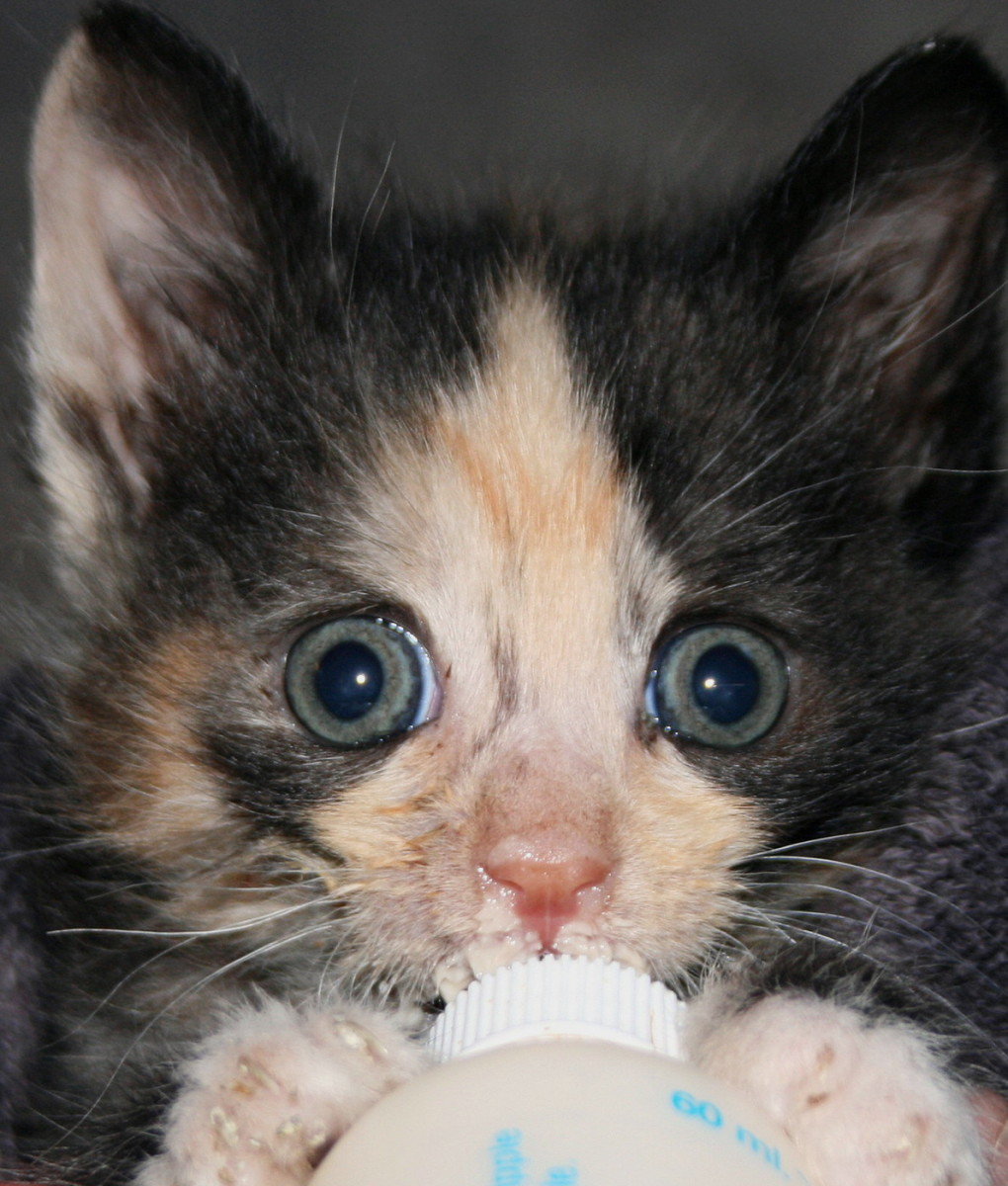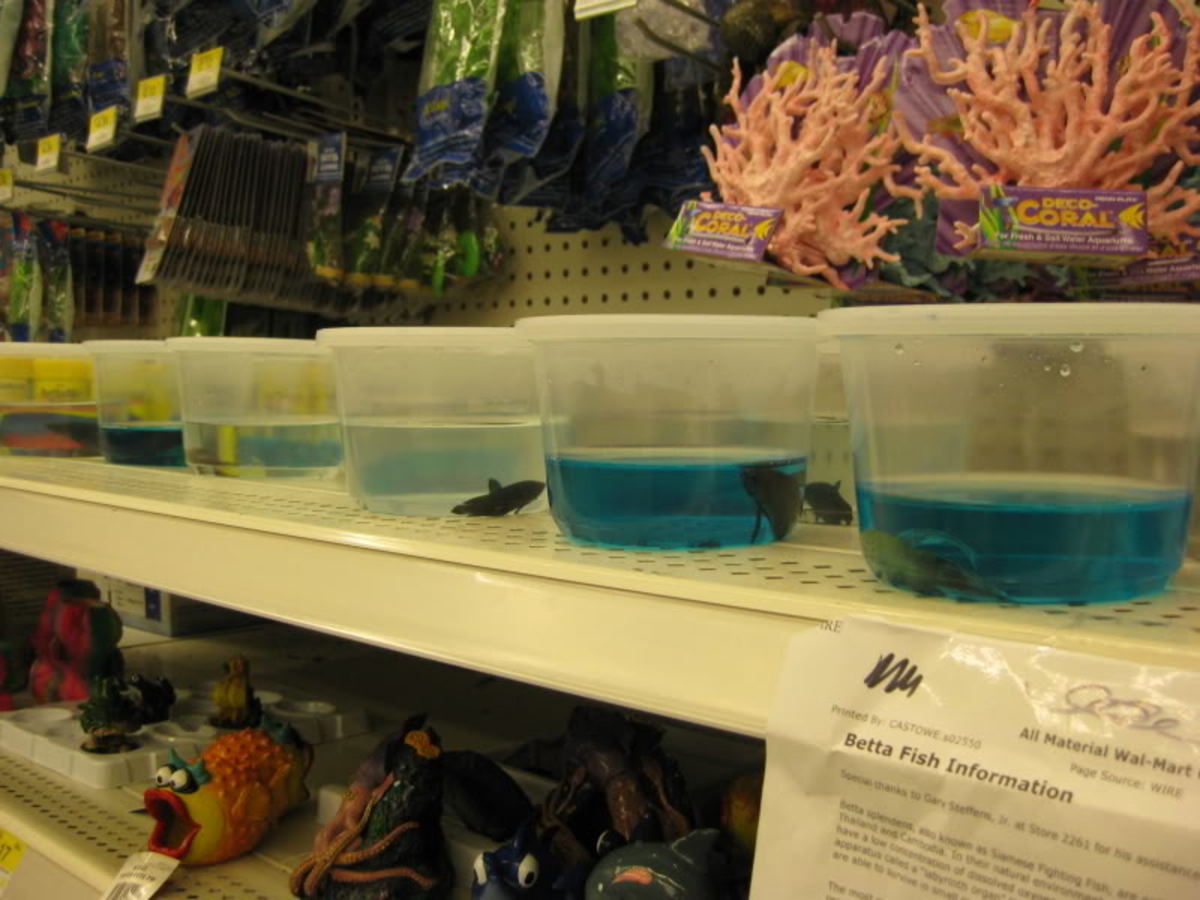- HubPages»
- Pets and Animals»
- Animal Care & Safety»
- Animal Rescue
How to Care for Orphaned Kittens

One summer evening, on my way out the door, I heard what sounded like a bird crying under my neighbor's parked car. But it wasn't a bird! Just behind the rear right tire, I found a tiny tabby kitten. He could easily fit in the palm of my hand and was covered in fleas. His eyes weren't opened. He was crying for help. What I remember most from that evening is how I whispered to him "I've got you now. You're going to be OK."
Step One: Take Kitty to Vet
The first thing you need to do is take your kitty to the vet, particularly if he or she is a stray. When I found my kitten, I was on my way to pick my kids up from school, but, instead, I wrapped the tiny kitty in a blanket and sped to the vet's. I can't remember if I ran red lights. My eyes were filled with tears.
Step Two: Get Necessary Supplies
If you take your kitty to the vet, the vet might be able to provide you with some of the supplies you will need to care for your kitten in the upcoming weeks. I also stopped at the store on the way home to get a few extras. Here is a list of what you will need to care for your orphaned kitten:
1) A dropper or kitten bottle. You can get a dropper from most drug and grocery stores. Some kittens will have a difficult time sucking the milk from the bottle, but either will work.
2) A small litter box
3) A hot water bottle
4) A white noise machine
5) Feeding blankets
6) Kitten formula--either in a can or powdered.
Step Three: Set Up Shop
The care of your kitten will require all of your attention for the next three weeks (at least). You need to make arrangements for this. You should do the following if possible:
1) Call in sick to work for the next few weeks (my boss is pretty difficult, so I faked a small stroke. See my other Hub Page on ways to get out of work for more details).
2) Cancel any previously made plans (This was hard for me as I missed my best friend's wedding. I told her about the kitten, and she didn't understand. I will say this is a great way to find out who your true friends are)
3) Make arrangements so that you no longer need to leave your home for the next three weeks. For me, this involved hiring our babysitter to drive the kids to school and then ordering a lot of pizza rather than going to the grocery. But we made it work).
Note: If you absolutely must leave the house, please see my Hub on how to safely hide a kitten in your jacket.
Step Four: Get Your Kitten Room Ready
You will need to dedicate one room in your house to your kitten. This way you can shut him or her off from the rest of the household--your noisy kids, other pets, your complaining husband. This kitten room needs to be a quiet space for just you and your kitty. I chose my bathroom (it's a master bath) and arranged everything I would need for myself and the kitty over the next three weeks. I set up my kitten's litter box and then made a pile of blankets and pillows for me to sleep on next to the bathtub. I got all the feeding supplies for my kitten and then some supplies for my own survival--it's best to bring nonperishable foods with you--beef jerky, trail mix, those kinds of things.
Step Five: Kitten Care
These are the things your kitten will need from you: 1) Food 2) Warmth 3) LOVE
Your routine with your kitten should involve frequent feedings. He or she will cry out for mother's milk to let you know when it's feeding time. You should warm the milk with hot water. While you feed your cat, it is very important that you create a calming environment and replicate a mother cat's interaction with her kitten. For this, I set my noise machine to ocean sounds. I then held my kitty close to my chest and constantly kissed the top of his head and rubbed his front paws.
It is also important that your kitten stay warm. You should use the hot water bottle wrapped in a towel for this and supplement this with your own body heat.
Most importantly, though, you must give your kitten love. He or she is likely confused, wondering at first, "Where is my mommy?," "Where are my brothers and sisters?", "Who is this woman?" This is why I think it is important to tell your kitten his or her adoption story from day one. Gently whisper in his or her ear "I found you behind a dumpster. Everything will be OK. I've got you now," or "Someone left you in a bag behind Kroger. But I love you."
Final Step: The Payoff
Once your kitten begins to eat solid food, you can have more time to yourself. Your friends and family might think that your time with your kitten is over--that your kitten is now a cat that requires nothing more than a few pets on the head and bowls of dry food. However, they won't understand the bond that you now have with your new kitten. Though you can now leave the house more often, (which is fun--I loved reading the news after three weeks and talking to my kids and husband--so much had happened in the world and in their lives!), you are still closely bonded with your new kitten, who now sees you as his or her mother. Because of this, it's best to transition slowly. Let your friends and family know that you are a new cat mother and that your top priority is your kitten--even if he or she is nearly grown. If you have the means, you might consider renting a small apartment to live with your kitty. This way he or she won't feel threatened by the other people and animals in your life.








